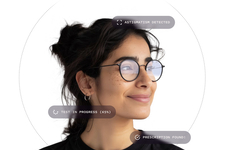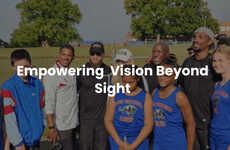
VisionSpring is a Social Enterprise Selling Eyeglasses to Developing Countries
Tiana Reid — October 25, 2010 — Social Good
References: visionspring.org & facebook
VisionSpring is a social enterprise that aims to provide eye care and eyeglasses to people in developing countries that might not otherwise have access. According to the VisionSpring website, 773 million people around the world suffer from vision loss and 563 million of those people can have restored vision with the help of eyeglasses.
In the field of development, vision care is sometimes put on the back burner to more critical issues like famine and disease. However, according to a study by AMD Alliance International, the cost of vision loss on the global economy in 2010 is $3 trillion. The costs included in this study range from lost productivity to caregiver costs. If people are able to see more clearly, they have a better chance at effectively working, learning and earning an income for themselves and their families. VisionSpring states that each pair of eyeglasses (around $4 dollars each) increases a person’s productivity by an astounding 35 percent. What’s more, individuals earn an extra $381 on average over two years. It’s clear that healthy eyesight is essential to communities around the world.
Since VisionSpring is a social enterprise, it is able to utilize both business models and charity sensibilities in order to ensure that supply meets demand. Rather than giving away free glasses, VisionSpring sells them in order to empower the poor as consumers, as well as create an income for the social entrepreneurs that it supports through a program called Vision Entrepreneur. Vision Entrepreneurs are able to sell their own eyeglasses to their communities, with the help of a “Business in a Bag,” which is a microfranchise sales kit that ensures success on the sales market.
Currently operating in Bangladesh, El Salvador, India, Indonesia and South Africa, VisionSpring impacts individuals all around the globe. Access to comprehensive eye care is a step toward building self-sufficient communities—and VisionSpring is there to make sure it happens.
Contact Information:
VisionSpring Website
322 Eighth Avenue Suite 12A-02
New York, NY 10001
Telephone: +1 212 375 2599
In the field of development, vision care is sometimes put on the back burner to more critical issues like famine and disease. However, according to a study by AMD Alliance International, the cost of vision loss on the global economy in 2010 is $3 trillion. The costs included in this study range from lost productivity to caregiver costs. If people are able to see more clearly, they have a better chance at effectively working, learning and earning an income for themselves and their families. VisionSpring states that each pair of eyeglasses (around $4 dollars each) increases a person’s productivity by an astounding 35 percent. What’s more, individuals earn an extra $381 on average over two years. It’s clear that healthy eyesight is essential to communities around the world.
Since VisionSpring is a social enterprise, it is able to utilize both business models and charity sensibilities in order to ensure that supply meets demand. Rather than giving away free glasses, VisionSpring sells them in order to empower the poor as consumers, as well as create an income for the social entrepreneurs that it supports through a program called Vision Entrepreneur. Vision Entrepreneurs are able to sell their own eyeglasses to their communities, with the help of a “Business in a Bag,” which is a microfranchise sales kit that ensures success on the sales market.
Currently operating in Bangladesh, El Salvador, India, Indonesia and South Africa, VisionSpring impacts individuals all around the globe. Access to comprehensive eye care is a step toward building self-sufficient communities—and VisionSpring is there to make sure it happens.
Contact Information:
VisionSpring Website
322 Eighth Avenue Suite 12A-02
New York, NY 10001
Telephone: +1 212 375 2599
Trend Themes
1. Eye Care Accessibility - There is a need for accessible eye care services worldwide to improve productivity and quality of life.
2. Social Enterprise for Vision Care - The social enterprise approach can be effective in providing affordable and sustainable vision care solutions in developing countries.
3. Microfranchise Sales Kit - A 'Business in a Bag' program can empower social entrepreneurs and improve access to eyeglasses in underserved communities.
Industry Implications
1. Healthcare - The healthcare industry can benefit from innovative solutions that make eye care more accessible and affordable to underserved populations.
2. Social Entrepreneurship - Social entrepreneurship can create new business models that address social and environmental challenges, such as providing quality eye care to developing countries.
3. International Development - International development organizations can collaborate with social enterprises and local entrepreneurs to improve eye care services and promote sustainable development.
0.7
Score
Popularity
Activity
Freshness























